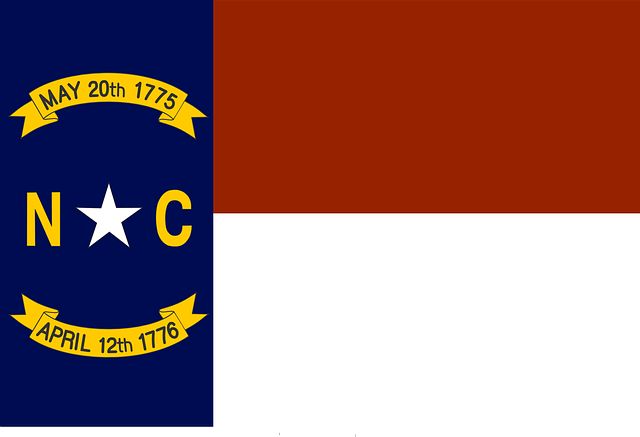No Call Laws in North Carolina, enforced by the Federal Trade Commission (FTC), protect residents from unwanted telemarketing calls. Businesses must respect do-not-call requests and comply with TCPA regulations, avoiding violators' fines and accountability. Jacksonville citizens can register on the FTC's Do Not Call Registry and benefit from educational initiatives to control communication preferences. Local businesses prioritize No Call Laws compliance through CRM systems and third-party call centers, ensuring consumer privacy and a quieter environment for residents.
In Jacksonville, North Carolina, “No Call Laws” are instrumental in safeguarding residents from unwanted telemarketing calls. This article explores how the Federal Trade Commission (FTC) plays a pivotal role in enforcing these crucial rules, ensuring consumer privacy and rights. We delve into the impact of these laws on local businesses, while also examining the broader landscape of consumer protection in North Carolina. Understanding the FTC’s efforts is key to appreciating the value of No Call Laws in maintaining a peaceful, less intrusive communications environment.
Understanding No Call Laws in North Carolina

In North Carolina, “No Call Laws” refer to a set of regulations designed to protect residents from unwanted telephone solicitations or telemarketing calls. These laws give consumers the right to opt-out of receiving such calls, ensuring their privacy and peace of mind. Under North Carolina General Statutes § 75-60 et seq., businesses are prohibited from making automated or prerecorded telephone calls for marketing purposes unless the caller has obtained prior express consent from the recipient.
Additionally, companies must honor requests to stop calling, as per the Do Not Call Registry maintained by the Federal Trade Commission (FTC). Jacksonville residents can register their phone numbers online with this national registry, significantly reducing the volume of unsolicited calls they receive. The FTC actively supports and enforces these No Call Laws, working in collaboration with state attorneys general to protect North Carolina consumers from deceptive or harassing telemarketing practices.
FTC's Role in Enforcing Telemarketing Rules

The Federal Trade Commission (FTC) plays a pivotal role in enforcing telemarketing rules, including No Call Laws in North Carolina. These regulations are designed to protect residents from unwanted phone calls and give them control over their personal data. Under the Telephone Consumer Protection Act (TCPA), the FTC oversees and enforces restrictions on telemarketers, ensuring they cannot call individuals who have registered on the National Do Not Call Registry.
In Jacksonville and across North Carolina, the FTC actively monitors complaints related to No Call Laws violations. They investigate instances where consumers receive calls from telemarketers despite being on the registry, working with law enforcement to penalize violators. The FTC’s efforts not only safeguard residents’ privacy but also foster a fair market environment by preventing deceptive marketing practices.
Protecting Residents from Unwanted Calls

In Jacksonville, North Carolina, the Federal Trade Commission (FTC) plays a pivotal role in enforcing and supporting No Call Laws to protect residents from unwanted phone calls. These laws are designed to curb excessive telemarketing and robocalls, which can be frustrating and intrusive for citizens. By implementing strict regulations, the FTC ensures that consumers have control over their communication preferences.
Through various initiatives, the commission educates residents on how to register for do-not-call lists and provides resources to help them manage and block unwanted calls. This collective effort not only empowers individuals but also creates a more peaceful and less chaotic environment in North Carolina, making it easier for folks to conduct their daily affairs without constant interruptions from telemarketers.
How Jacksonville Businesses Comply

Jacksonville businesses, from small startups to established enterprises, take compliance with North Carolina’s No Call Laws seriously. To avoid unwanted telemarketing calls and protect consumer privacy, many companies implement robust do-not-call measures. This often involves utilizing customer relationship management (CRM) systems to track interactions and automatically exclude numbers on the state’s do-not-call list from marketing efforts.
Additionally, businesses train their staff on the importance of respecting consumer choices regarding phone communications. They also work with third-party call center providers that adhere to strict guidelines set by the Federal Trade Commission (FTC) to ensure compliance with No Call Laws in North Carolina and across the nation.
The Impact on Consumer Privacy and Rights

In North Carolina, as in many other states, No Call Laws are designed to protect consumer privacy and rights. These laws restrict telemarketers from making unsolicited phone calls to residents who have opted out of such communications. The impact is twofold: first, it ensures that citizens can enjoy their personal time without constant interruptions from sales or service offers they may not be interested in. Second, it reinforces the right to privacy by giving consumers control over how their contact information is used.
By enforcing No Call Laws, the Federal Trade Commission (FTC) plays a pivotal role in upholding these consumer protections. The FTC monitors compliance and takes action against violators, providing a layer of safety for North Carolina residents. This not only discourages invasive telemarketing practices but also educates consumers about their rights, empowering them to take measures to safeguard their personal information and peace of mind.






